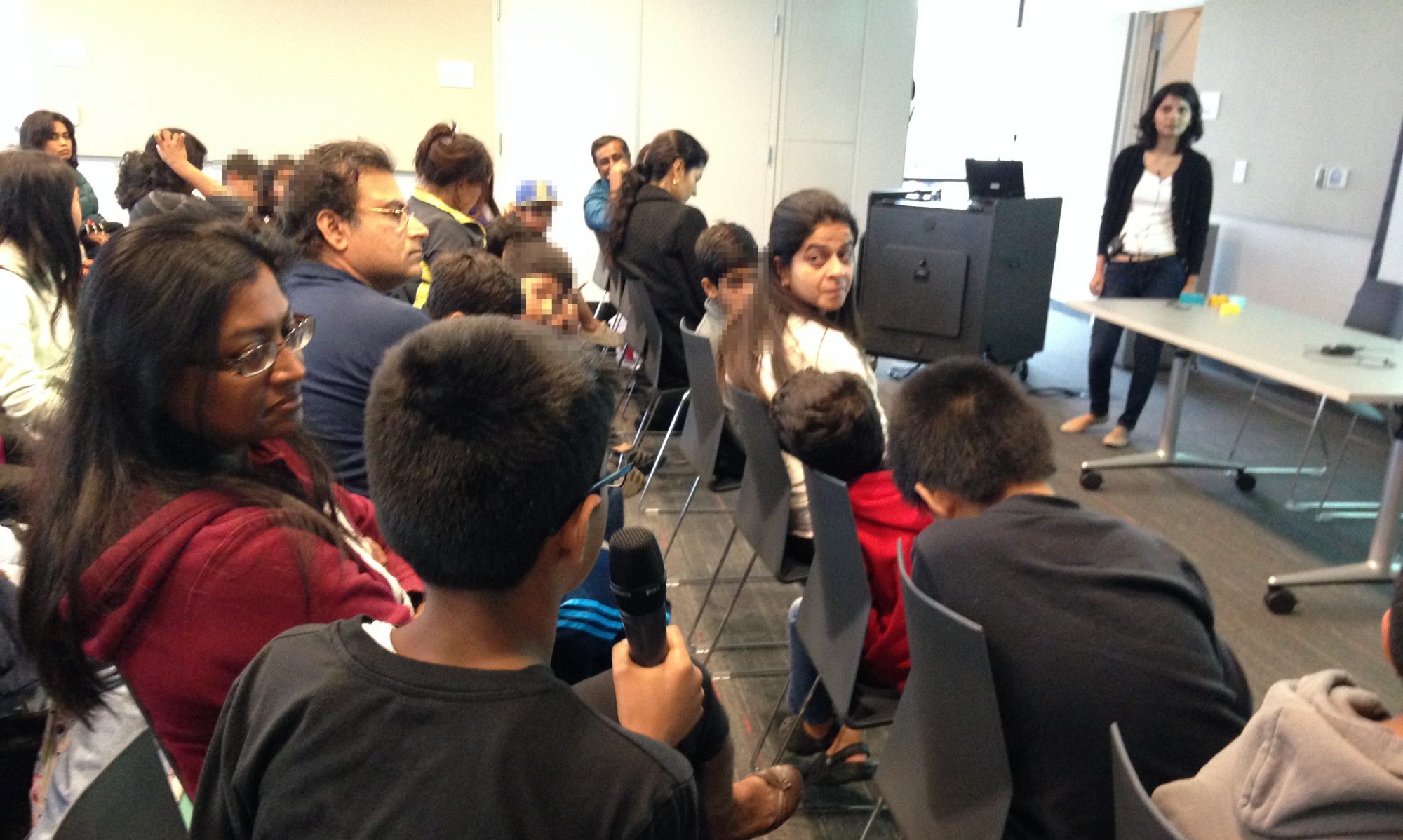This article was originally written on April 28, 2019.
Summer is a great time to bring out the inner entrepreneur in every child.
Over the last 3 quarters, we had the privilege of working with school-age kids to help them learn how to be entrepreneurial minded, and become changemakers. The following tips for parents to try at home are based on lessons from an afterschool club we conducted at a premier IB World School in Tampa, Florida. Participants were from grades 3, 4 and 5. We used a curriculum that was developed specially to help young kids understand the process of bootstrapping a change-making idea and taking it to the market.
Here are some of the lessons they learned.
Make Happiness:
Children love to spread happiness. Spend time with them charting out the kind of local impact that would make them happy. In our school project, the students agreed that they love animals, and their school, so their project’s goal was to create something, sell it, and use the profits to support the school s PTA and the local Human Society.
Play On Their Strengths:
The project was to guide the kids in the design of a product using innate and acquired skills that is age-appropriate, and help them find a way to generate value that can be distributed to make the community better.
Think of Entire Systems:
On your next visit to the grocery store, encourage your kids to think of all possible angles in getting a product in the store-shelves, and make them think about trade-offs in making decisions. We used frameworks to guide the children and help them draw their own conclusions.
It’s Okay To Go Screenless:
See if you can avoid the use of technology and encourage them to take an artisanal approach. It is actually doable, and there are fewer distractions.
Emphasize Interpersonal Communication:
Include friends and neighbors’ children to make it a group project. In our afterschool club we allowed for a lot of creative play among the kids, and it was perfectly okay for them to veer off into discussions, drawings on the board, and generally goof off as long as it helped further the project. The students had a blast debating the various decisions they had to make, from design, to branding and pricing.
Resourcefulness:
You can teach the children how to become change-makers using all their strengths. That meant, they had to be resourceful in getting things done with no upfront investment of money, and yet create something valuable for a target audience.
Negotiating Deals:
You can take them to have real-world conversations. Kids are naturally curious, and incredibly creative. You can teach them how to communicate in certain business settings in the real world. In our club, we used a framework for this process of entrepreneurial thinking leading them from one step to the next, almost like a roadmap or a map in a treasure hunt.
Bootstrapping:
You can teach the kids the concept of obtaining pre-orders and then investing in making the product. The kids will thus know that they can accomplish quite a lot without upfront capital investment from elders.
Effecting Social Impact:
You can help the kids communicate in such a manner that the grown-ups take them seriously by steering them towards creating something of value to the community.
Team Work:
The children will learn to work through their differences and soon start employing humor as a tactic to support one another, to learn from one another and also to pick each other up when any one person made a mistake that could have set the team back.
Emotional Intelligence:
The children will learn how to move a project along, how to be patient with one another while working as a team, and how to make meaningful contributions towards creating a finished product that they can take to market. They will learn how a little give and take can make all the difference in a real-world project.
Relevance:
Make sure you go with a project that finds resonance with them, otherwise it will risk losing steam.
A Modern-Day Lemonade Stand:
Like we did with the afterschool club, this can be a rewarding experience for everyone involved even if you never take their creation to the market. The curriculum we used at AlligatorZone Academy is one of many modern-day social-impact versions of the age old lemonade-stand, providing the more informed and digitally native child a simple way to manage a complex thought-process for solving problems for the greater good.
When I tell people that we coached kids who are as young as 3rd graders about an entrepreneurial mindset, the common reaction is one of surprise. In reality, kids are innately creative, collaborative and curious. They also know how to have fun and dust themselves off to get back in the game after a stumble. In other words, every kid has an entrepreneur within. This summer try to bring out the hidden entrepreneur in your child.

